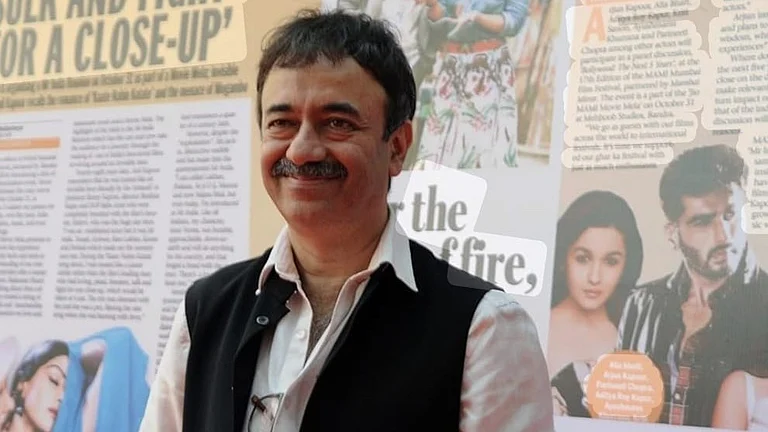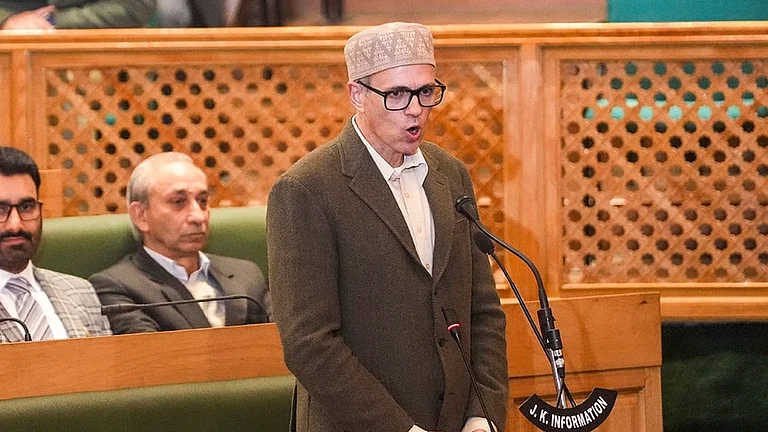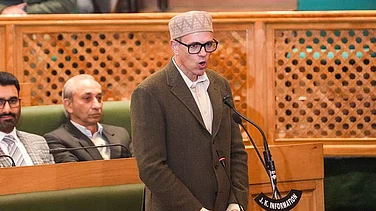The defence sector has made giant strides towards achieving self-reliance in the last nine years and most of the weapons being used by the armed forces are made in India, Defence Minister Rajnatjh Singh said on Saturday.
Describing the significance of 'Aatmanirbharta', Singh said, "Without self-reliance, we cannot take independent decisions on global issues in line with our national interests."
"The dependence on import of defence equipment is a hindrance to India's strategic autonomy. Imports adversely affect the balance of trade that is detrimental to our economy," he said.
In an address at an event organised by a private TV news channel, the defence minister said self reliance not only strengthens the economy, but greatly enhances employment opportunities too.
In the last nine years, the defence sector has made giant strides towards achieving self-reliance and due to the efforts of the government led by Prime Minister Narendra Modi, most of the weapons being used by the armed forces are made in India, he said.
The defence minister listed out various steps taken by the government towards achieving 'Aatmanirbharta' (self-reliance) in defence sector. These include issuance of eight positive indigenisation lists -- four by Department of Military Affairs comprising 410 weapons and platforms for the armed forces and four others of 4,666 items by the Department of Defence Production.
Import restrictions on these items have been imposed under a staggered timeline. Singh emphasised that 'New India' is indigenously making aircraft carriers like INS Vikrant, Light Combat Aircraft Tejas and the country is now moving towards self-reliance in every field.
On India's G-20 presidency, Singh stated that it demonstrates the growing stature of India in the international community. He talked about the shift in India's approach in the foreign policy from "non-alignment to multi-alignment".
"We do not believe in non-alignment. We believe in issue-based multi-alignment. Today, our thinking is not escapist, but pro-active and pragmatic. While taking decisions, now we are guided by the national interest. We are taking decisions without any pressure," he said.
Singh pointed out that due to the government's efforts, India is now among the top five economies and in the coming years it will become a USD 5 trillion economy. "India was once ridiculed for its low economic growth rate in the 60s and 70s. Today, we are the fastest growing major economy in the world," he said.
Singh stressed that the government has addressed the issue of poverty resolutely, due to which 13.5 crore people have risen above the poverty line in the last five years, according to NITI Aayog.
He added that the world bodies, including the World Bank and International Monetary Fund, have appreciated the government's efforts towards eliminating poverty. From the category of 'Fragile Five', investment firm Morgan Stanley has now kept India in the group of 'Fabulous Five', he said.


























